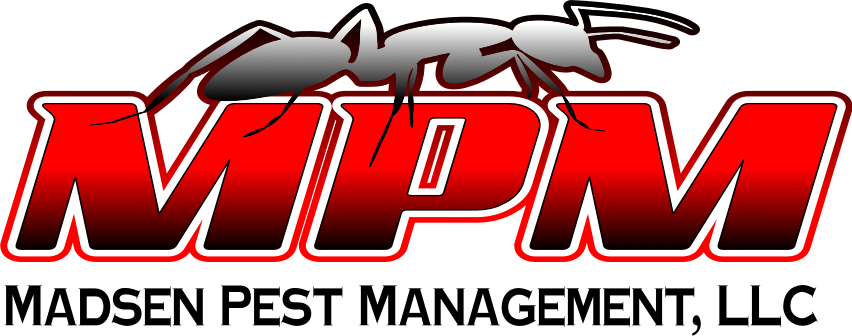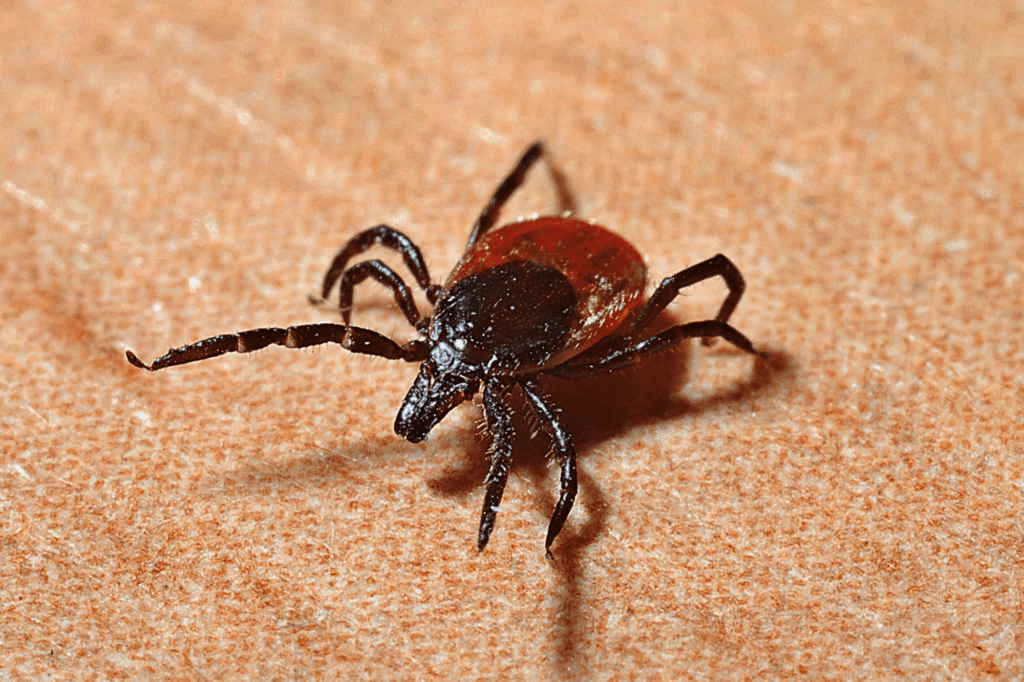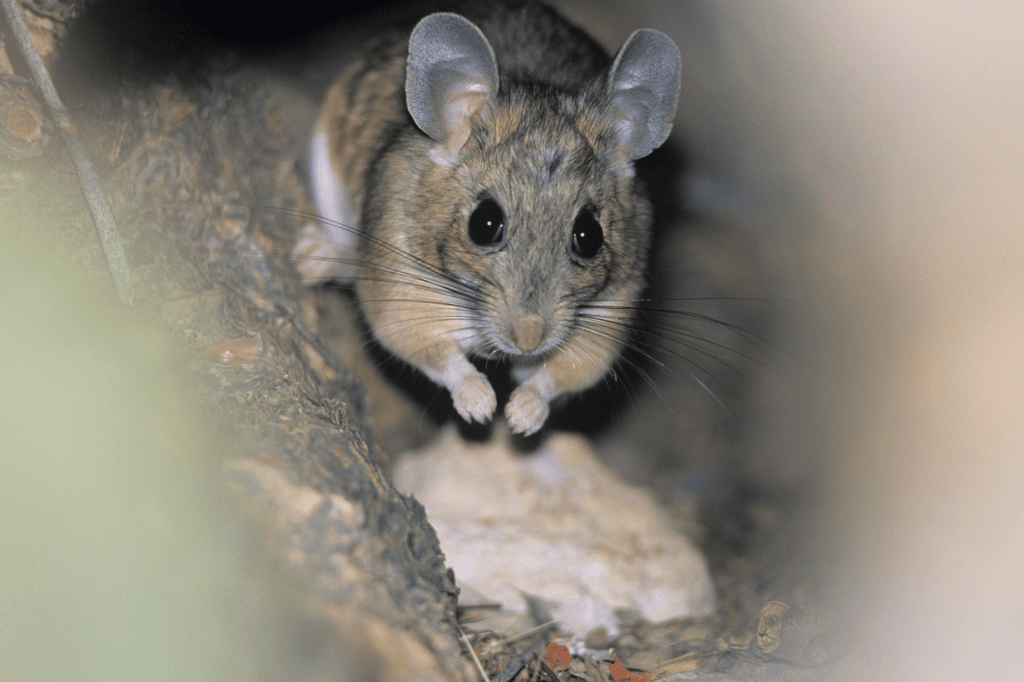You step outside for a moment of tranquility with your morning coffee, only to find your garden buzzing with more activity than a Friday night fish fry! Fear not, for today we’re diving into the delightful world of DIY wasp and hornet nest removal. So, get ready to channel your inner MacGyver—no hazmat suit required.
Whether you’re dealing with a wasp commune or a hornet’s hangout, we’ve got the tips and tricks to help you reclaim your backyard kingdom without getting stung. Let’s get ready to rumble (safely) and make your home a buzz-free paradise!
Identify that Pesky Predator
Hornets:
No, these aren’t your friendly, garden-pollinating bumblebees—you can tell the difference as soon as you see them, but do you know how to identify a wasp from a hornet?
Identifying hornets is easy when you know what to look for. They are larger than most wasps, with smooth, shiny bodies that are typically black and white or black and yellow. Hornets have a large head and powerful jaws, and they fly in a direct, purposeful manner.
Hornets’ nests are most commonly found in trees or bushes and appear to be ball-shaped or upside-down teardrop-shaped, made from a grayish papery material with a hole at the bottom.

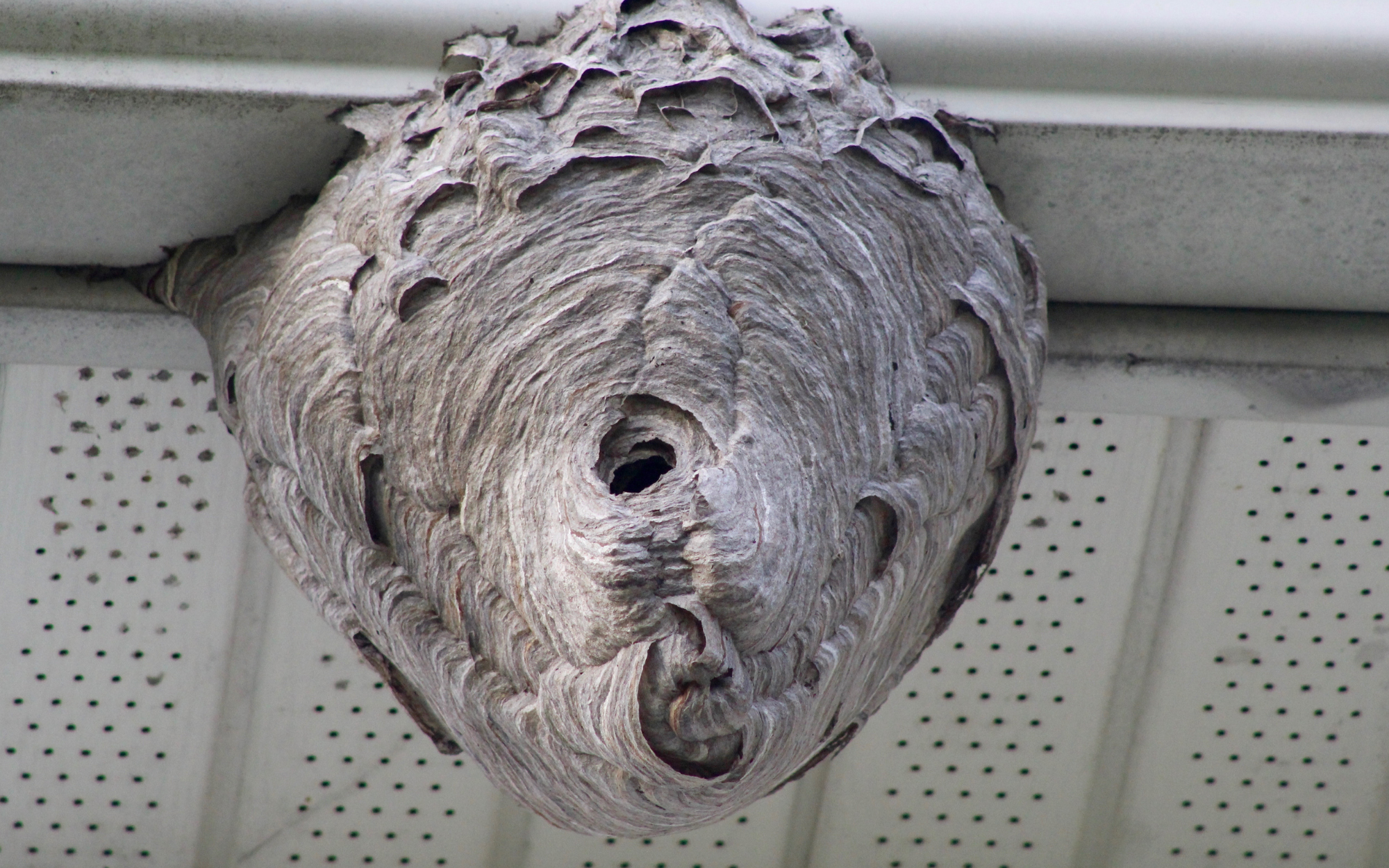
Wasps:
To identify wasps, look for their slender bodies and narrow waists, which distinguish them from bees and hornets. Wasps typically have smooth, shiny bodies with distinct black and yellow or black and white patterns.
Wasps are typically smaller in size and can be identified by their visible hexagonal cells, or combs, which are seen from underneath. You can usually find wasp nests under building overhangs, behind shutters, or inside grills. If you spot an insect around these areas that matches this description, you are likely looking at a wasp.
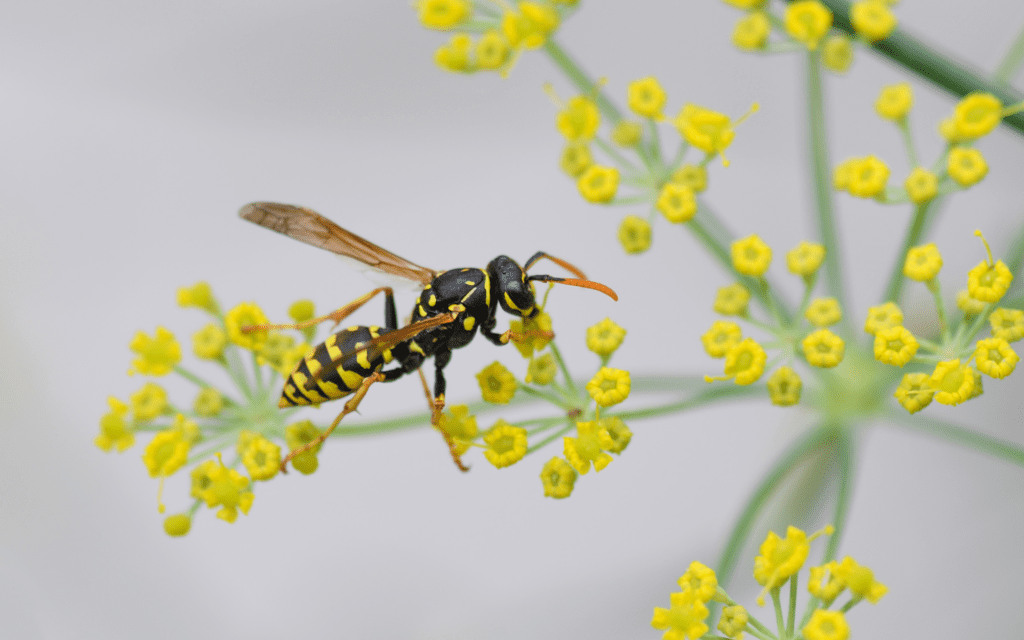
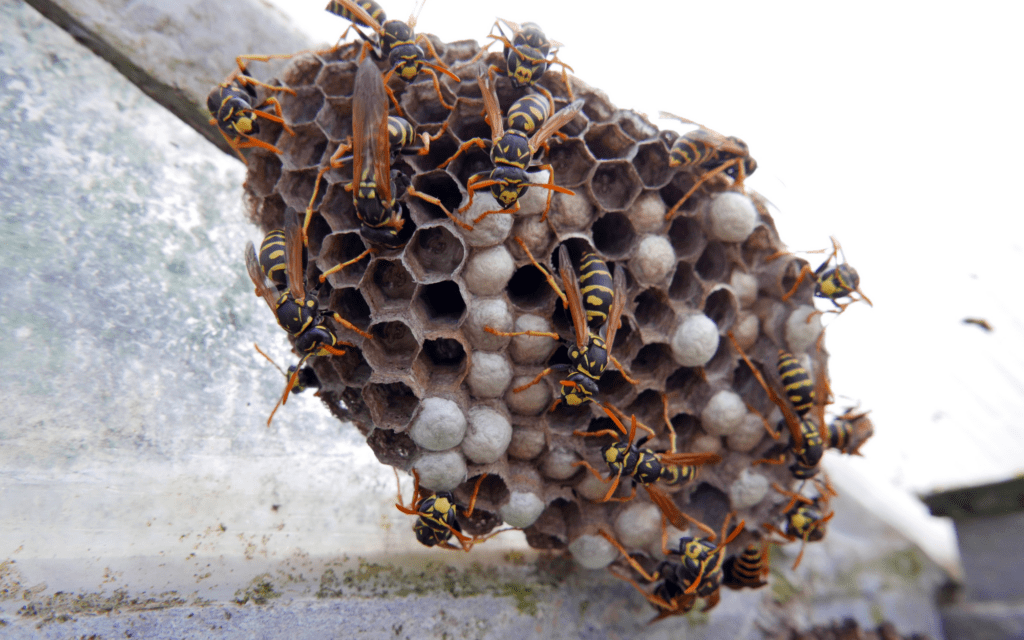
DIY Nest Removal Tips
Feeling brave enough to tackle that nest removal on your own? Well, first, let us tip our hats to your courage (or sheer audacity)! Just remember, hornets and wasps are like the unruly guests of the insect world—quick to anger and never in a hurry to leave. If you must try to remove the nest yourself, here are a few safety tips:
Suit Up & Move Slow – Always approach the nest slowly and quietly, ideally at night, while wearing protective clothing.
Spray & Saturate From Afar – Use a pesticide spray that contains chemicals that kill the wasps/hornets on contact. Always stand 20 feet away when spraying and fully saturate the nest. Then leave it alone!
Double Check – Next, be sure to check the nest over a couple of days to check for any signs of life. Still hear that annoying buzz? Spray and let the nest soak overnight again before checking in the morning to make sure all of the insects are truly dead.
Cover & Dispose – You’ve got this! Now, slowly cover the nest with a heavy duty garbage bag, carefully detach it from the tree or wall, and seal the bag well before disposing in a closed garbage bin to wait for trash pick up.
Wasp and Hornet Nest Prevention
Be Clean – Sweep up and dispose of leaves and yard debris, and keep outdoor trash bins closed with tight fitting covers. Additionally empty any standing water from gutters, bird baths, or other places that accumulate rainwater. After dining or enjoying fruity drinks outside, make sure to wipe up and clean the area well of any leftover crumbs or spilled liquids.
Prune Well and Inspect Yard Frequently – Always be sure to properly prune trees and bushes to keep things nice and tidy while keeping those stinging insects away. Pruning helps to limit the insect’s natural habitat as well as helping you spot where they may be nesting. Additionally, inspecting your yard and filling in any holes with sand or fine soil can help eliminate potential nesting sites and discourage wasps and hornets from establishing colonies.
Use Plants and Essential Oil – Planting mint around your house, or keep a small potted mint plant near problem areas, wasps and hornets hate the smell. Peppermint oil also helps keep these potentially harmful pests at bay. You can either put some on a cotton ball and place it next to where they like to nest, or go ahead and add a few drops to a spray bottle and spray on areas where you frequently see wasps and hornets in your yard.
So, give yourself a well-deserved pat on the back—and maybe a cautious victory dance! Your newly re-claimed outdoor space is a testament to your bravery, resilience, and notable lack of any *actual* stings. Now, go forth and indulge in a buzz-free cup of coffee or an uninterrupted outdoor nap. Just keep an eye out—you never know when your services might be needed again in the battle against the next unexpected invasion.
When in doubt, Give the Experts a Buzz
Whether you’re allergic or just fear these bothersome stinging insects, we can all agree that wasp and hornet nest removal is always better left to the professionals. Save yourself from potential dangerous mishaps by giving the experts at Madsen Pest Management a call at 715-792-4777.
Until next time, may your gardens be green and your wasp and hornet encounters delightfully scarce!
Related Posts
THE ICKS ON TICKS: HOW TO SAFELY REMOVE A TICK
You might not even notice it at first, but a tiny, unwanted hitchhiker has latched onto your skin. It could be on your arm, your leg, your back, or anywhere else those sneaky ticks like to burrow in. It can be tempting to grab it, yank it off, and get on with your day. But…
THE TOP 5 SIGNS YOU HAVE A RODENT PROBLEM
Rodents may be small, but the damage they cause can be significant. Common invaders include house mice, deer mice, Norway rats, and roof rats, all of which can squeeze into tiny openings to make themselves at home. If you suspect a rodent problem in your home or business, early detection is key to preventing costly…
HOW TO PREVENT BED BUGS WHILE TRAVELING
Ah, the joys of travel! Exploring new places, trying exotic foods, and… accidentally bringing home tiny, unwelcome stowaways? Yikes! Bed bugs are the last souvenir anyone wants. But don’t worry—we’ve got you covered with these tips to help you stay bug-free while globe-trotting (or even staycationing). 1. Pack Like a Pro Before you even leave…
